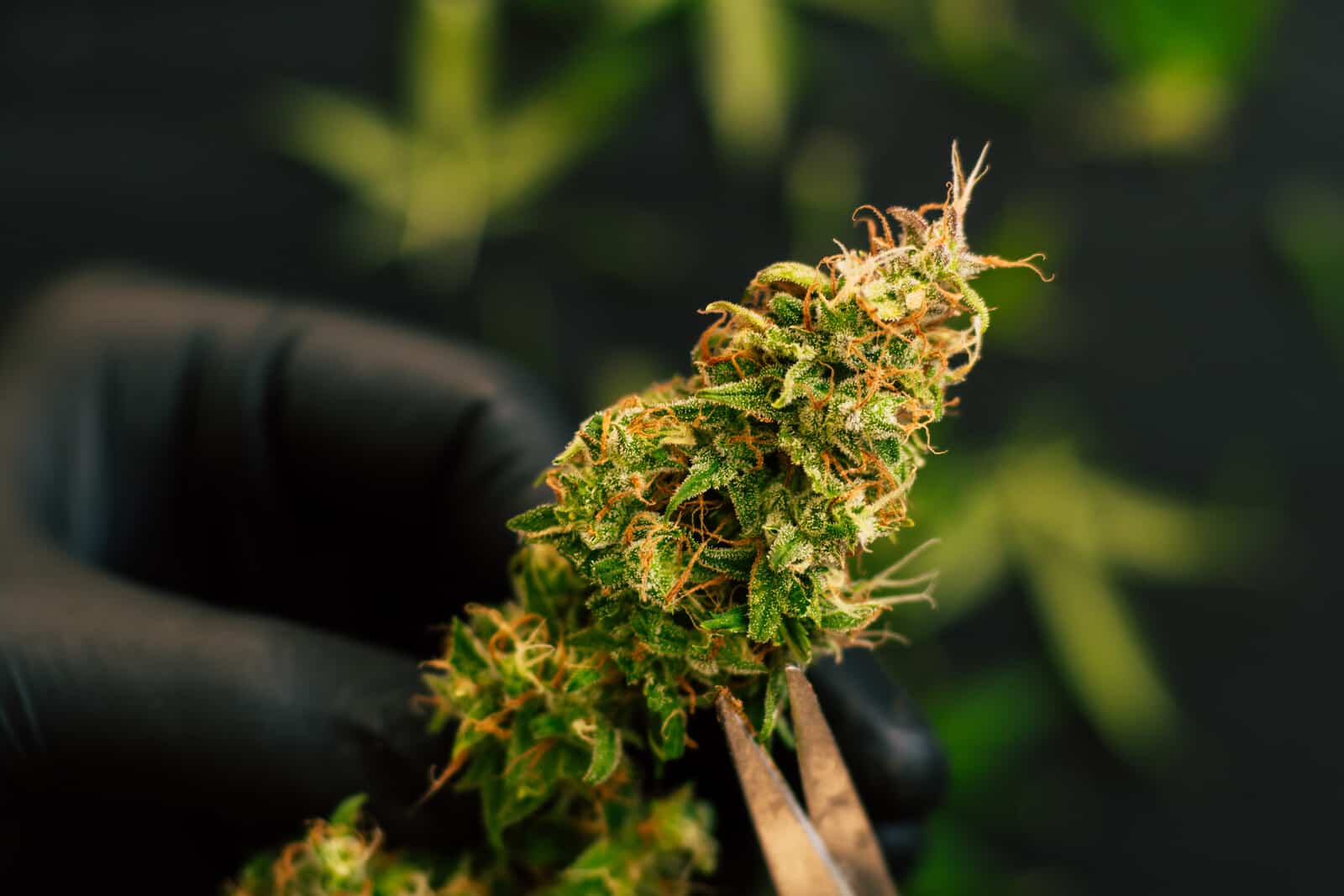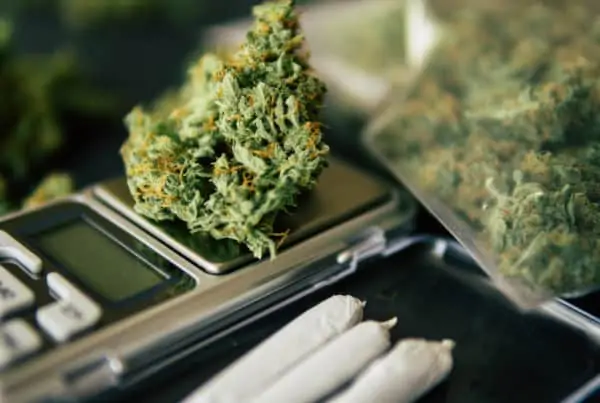TABLE OF CONTENTS
If you're an aspiring cannabis professional, look no further than our job seeker’s guide to Michigan marijuana jobs and cannabis careers. Our cannabis employment guide gives you an in-depth look into the current state of Michigan’s cannabis market, regulations and rules, and tips on how to find a marijuana job in this highly competitive industry.
Michigan Marijuana Laws: Explained
Before we get into the details on how to get a cannabis job in Michigan, let's go over some of the most important medical and recreational cannabis laws in the state. Medical marijuana use was legalized in 2008 by Michigan voters.
Adult-use cannabis was legalized in December 2018 and adult-use sales started in late 2019. Under the law, adults 21 years or older and patients can possess up to 2.5 ounces of cannabis flower or 15 grams of concentrate.
At home, the possession limit is higher. People can hold up to 10 ounces of flower as long as anything over 2.5 ounces is locked away. Interested in growing? Michigan allows you to grow up to 12 marijuana plants per household. If you're growing your own weed, there's no limit to how much you can possess.
Patients in Michigan can obtain a medical marijuana card. Michigan’s application fee is $40 and is valid for two years. Minors can access medical marijuana with the assistance of a legal guardian or parent. Minors require two complete physician certification forms.
The following qualifying conditions are able to be treated with medical cannabis.
- Cancer
- Glaucoma
- HIV/AIDS
- Hepatitis C
- Amyotrophic Lateral Sclerosis (ALS)
- Crohn’s Disease
- Agitation of Alzheimer’s Disease
- Nail Patella
- Post-Traumatic Stress Disorder (PTSD)
- Obsessive-Compulsive Disorder (OCD)
- Arthritis
- Rheumatoid Arthritis
- Spinal Cord Injury
- Colitis
- Inflammatory Bowel Disease
- Ulcerative Colitis
- Parkinson’s Disease
- Tourette’s Disease
- Autism
- Chronic Pain
- Cerebral Palsy
- A chronic or debilitating disease or medical condition or its treatment that produces one or more of the following:
- Cachexia or Wasting Syndrome
- Severe and Chronic Pain
- Severe Nausea
- Seizures (Including but not limited to those characteristic of epilepsy)
- Severe and Persistent Muscle Spasms (Including but not limited to those characteristic of multiple sclerosis)
Cannabis Employment Opportunities in Michigan
According to Leafly’s 2020 cannabis jobs report, Michigan had a $420 million market and supported 8,235 full-time marijuana jobs in 2019.
In terms of population, Michigan has an estimated 10 million residents making it the second-largest state with a recreational market, right after California’s 39 million population count.
While some municipalities have banned cannabis commercial activity, they are biding their time to figure out the industry’s economic potential and developing specific regulations needed to implement the program.
If you want to work in Michigan’s cannabis industry, you must be at least 21 years old and pass a background check. A high school diploma or GED may not be necessary for certain entry-level positions such as dispensary budtender and cannabis trimmer.
Dispensary Jobs in Michigan
Michigan is full of employment opportunities for applicants hoping to work in a dispensary.
Entry-level applicants can score a job working as a budtender. Budtenders are responsible for guiding consumers through the store’s product selection and recommending them certain strains and products based on their individual needs. Budtenders can work their way up to management and leadership positions such as assistant manager and dispensary manager.
Budtenders in Michigan can earn anywhere from $12 to $15 an hour. Assistant managers can earn between $18 and $22 an hour. Dispensary managers can earn between $21 and 30 an hour.
Dispensaries in Michigan are also starting to hire delivery drivers. Drivers are required to deliver orders in a timely and professional manner. You’ll need a valid Michigan driver’s license, car insurance in the state, and a clean driving record. Delivery drivers can earn between $11 and $13 an hour.
Cultivation Jobs in Michigan
Cultivation jobs in Michigan range from entry-level trimmers and harvesting associates to lead cultivator positions that manage an entire facility. Cannabis trimmers are in charge of hand trimming, de-fanning, and cleaning cannabis flower in a fast-paced environment. Trimmers can earn about $13 an hour.
Trimmers can work their way up to management roles with more responsibilities. Cultivation assistant managers are responsible for managing the day-to-day operations of large-scale cultivation sites and ensure the plant is tracked from seed to sale. Cultivation assistant managers can earn about $40,000 a year.
Lead cultivators, also known as master or head growers, have the final word in cultivation operations. They manage a team of employees and ensure plants are properly planted, maintained, and harvested. Lead cultivators in Michigan can earn a salary of $45,000 to $55,000 a year.
Security Jobs in Michigan
Michigan’s need for trained security personnel is vast. Dispensaries and cultivation sites are required to have the required security measures in place. These jobs may require you to have a valid concealed pistol license (CPL) and a registered firearm. Security guards can earn about $14 an hour in Michigan.
Cannabis Edibles Jobs
Edibles manufacturers in Michigan are hiring for bakers, infusion technicians, and kitchen assistants, and packager positions. A cannabis kitchen assistant/packager is responsible for tracking products to remain compliant with state regulations.
Jobs at edibles companies may require previous experience working with baked goods and may need to obtain a food handling certification. Packagers are also packaging and organizing the warehouse. They can make anywhere from $12 to $14 an hour.
Receptionist Jobs in Michigan
Reception positions in cannabis companies are essential to an organized and effective organization. Front desk reception candidates must have an outgoing personality and have a passion for and understanding of cannabis. Receptionists must also verify paperwork and identification. Receptionists can earn about $12 an hour.
Cannabis Lab Testing Jobs in Michigan
Cannabis lab testing labs are looking for lab technicians to test cannabis and cannabis-derived products using lab-grade instruments. Cannabis is tested for heavy metals, microbial impurities, residual pesticides and solvents, and mycotoxins.
Lab technicians require a Bachelors or Master’s degree and at least one year of experience working in a research or industrial laboratory. Lab technicians can earn between $35,000 and $40,000 a year.
Michigan Cities With Cannabis Jobs
Cannabis jobs in Michigan are plentiful. Some of the hottest markets in the state can be found in Detroit, Traverse City, Lansing, Warren, Ann Arbor, Adrian. Other cannabis hubs include Battle Creek, Kalamazoo, Marshall, Grand Rapids, Owasso, Walled Lake, Evart, Big Rapids, and Jackson, Michigan.
How to Get a Marijuana Job in Michigan
If you want to get a marijuana job in Michigan you must first be well-acquainted with the state and local regulations regarding cannabis sales. Once you've become familiar with the rules, you can start searching for jobs in cultivation, transportation, distribution, retail, and testing.
Resume
Michigan's new recreational industry has the potential to provide residents with enormous employment opportunities. In order to stand out, you need a well-crafted and unique resume that highlights your previous and relevant work experience and makes notes of any transferable skills that can apply to the available position.
Education
If you lack sufficient knowledge about the industry, there are tons of blogs and videos online, as well as training programs that cover every aspect of the industry. CTU provides students with a comprehensive training program to become a patient, adult-use customer, grower, entrepreneur, or investor in the industry.
“
There are over 300,000 jobs in the cannabis industry. CTU trained me for one of them!

Makes $24.50 @ THC +
Events
Now that you have a firm grasp of cannabis topics, you can meet up with like-minded individuals, job seekers, and recruitment agencies to find the best job fit for you, Michigan has hosted multiple job fairs to fill in the state's need for entry-level and advanced cannabis jobs.
Keep an eye out for any industry events, seminars, trade shows, webinars, and other meet-ups that you can attend to meet professionals just like you or business owners who need help growing their business.
Michigan Cannabis Training
CTU’s online cannabis training program can teach you everything you wanted to know about the plant, how to grow cannabis, how to cook with cannabis, cannabis extraction methods, marijuana laws, and how to get a job among the sea of applicants.
Sign up for our renowned online cannabis program for twelve-weeks access to tons of courses, videos, ebooks composed by the industry's leading professionals. A small investment in your education can pay enormous dividends if you're committed and passionate about the industry.

Fred Hernandez
Fred Hernandez is a highly accomplished and versatile writer, boasting an extensive background in the cannabis industry. With an in-depth understanding of various sectors including cultivators, processors, retailers, and brands, Fred's expertise spans across the entire cannabis landscape. As a prominent contributor to CTU, he consistently delivers insightful articles exploring the latest developments, news, and regulations shaping the cannabis industry. Whether it's delving into the intricacies of cannabis products, cannabis strain reviews, or providing comprehensive analyses of cannabis laws, or sharing expert insights on cannabis cultivation techniques, Fred's wealth of knowledge positions him as an invaluable writer and educator for all cannabis-related subjects.












 Jeff was involved in an accident where he endured a traumatic brain injury. He had a week-long stay in ICU where brain surgeons
Jeff was involved in an accident where he endured a traumatic brain injury. He had a week-long stay in ICU where brain surgeons  100% risk free money back guarantee within 48 hours after purchase if student has not completed any of the courses or exams.
100% risk free money back guarantee within 48 hours after purchase if student has not completed any of the courses or exams.